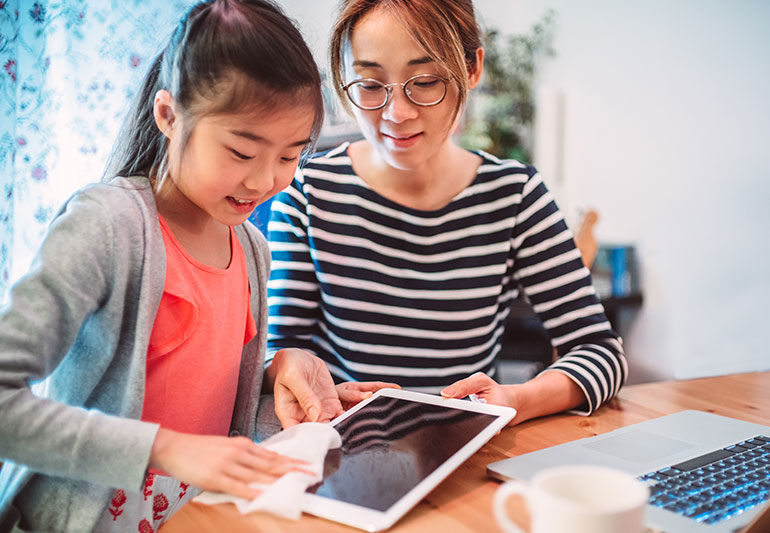Why do we disinfect?
What is the sole purpose of disinfecting? If we clean, do we need to disinfect or vice versa? What is the difference between regular cleaning and disinfecting? When you’re just doing a normal routine cleanse to your home or office, you’re just removing the visible dirt seen to the eye. Disinfecting, however, focuses more on the germs that are invisible to the eye. We cannot see germs unless using a microscope. Also when cleaning, if you just apply a disinfectant to a dirty surface, the disinfectant won’t be of much use. So in these case scenarios, you will want to disinfect to make sure you are not missing any possible germs.
When should you disinfect these surfaces in your home?
When it comes to anything, I strongly recommend that you clean regularly. Specifically after visitors. For this will help decrease the chances of germs spreading in your home or catching infections from touching. As we all know we are currently undergoing a pandemic still and we should take extra precautions. Let’s face nobody wants to be sick over a minor issue of just disinfecting everything touched.
How should you disinfect your home?
First off your going to want to use a substance that kills germs at least 99%. Anything frequently touched such as doorknobs, light switches, countertops, etc. You want to make sure you clean these areas daily because this is where most traffic is. Make sure you are following the directions of the products you’re using and for the proper surfaces. Kids are more prone to catching and spreading germs so if you have little ones in the house. So you’re going to clean all surfaces with soap and water to remove any visible dirt. Then you will go in with your disinfect spray to kill off the remaining germs. Keep in mind that disinfect sprays are strong so you will need to keep windows open for ventilation.
How to reduce the contamination of different surfaces around you
Especially during Covid, I suggest all visitors wear a mask when entering your home. If someone is sick around you, you will want to have them quarantine. You also going to want to disinfect any surfaces that may have come in contact with the suggested individual. May you always do this number one rule ALWAYS remember to wash your hands. Also please do it properly. Mainly, after returning from an outside activity. Wear gloves when doing any kind of cleaning and keep your mask on.
How often should you disinfect your office?
Similar to your home environment, there will be a lot of traffic in and out. One can assume that as much as you would clean and disinfect your home, give your job the same treatment. Due to the airborne viruses, possible contact from your colleagues, disinfect daily. From your computer to your desk, doorknobs, etc. Pretty much where ever people are to touch and breathe you must clean. You can consider hiring a professional NEA disinfection service.
What do I use to disinfect my office?
There isn’t really much of a difference between what disinfectants you use to eliminate germ spread. Bleach is a very common household disinfect and so is Lysol. If you do not have a germicide at the moment, you can use a mixture solution of bleach and water. Spray it onto the surface and wipe it away. Again remember when using such strong chemicals you want some ventilation to circulate through. So keep windows open.
Conclusion
So overall it doesn’t really matter where you are. As long as you are around other individuals, you are prone to germs. It’s just as simple as that. Even dust mites come when you don’t clean often. Remember to always wear gloves when handling garbage. When you’re done doing any activity remember to keep your hands clean and keep hand sanitizer with you. Germs are everywhere and nobody likes the idea of being sick, especially now your look is funny. Due to this whole Covid situation, more precautions should be taken into place. Nonetheless practicing good hygiene plays a part in all of this. If you’re sick try to keep your hands clean and try to stay away from people as much as possible to help prevent spreading germs.





